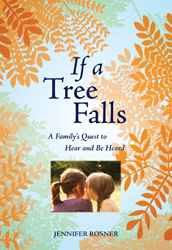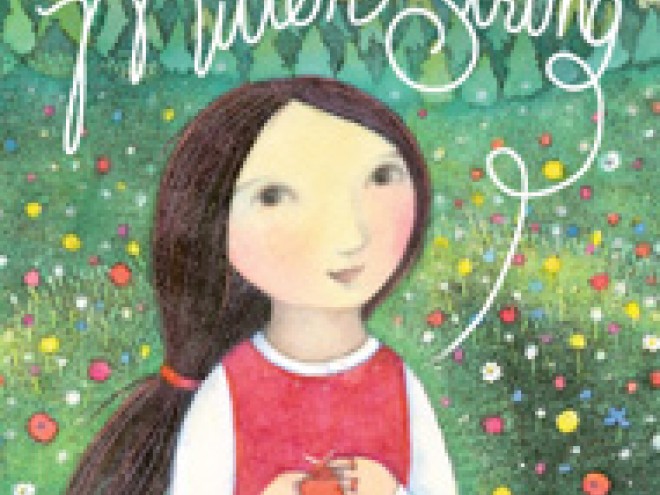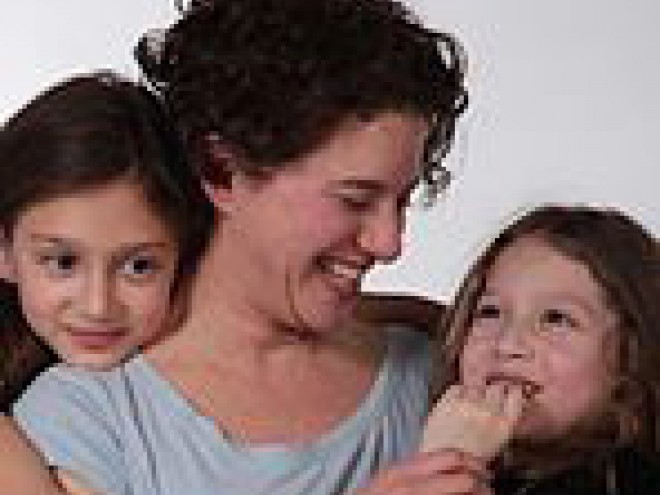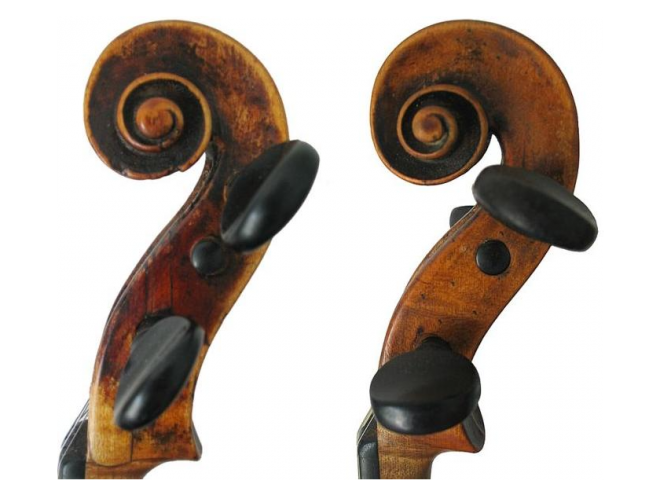Earlier this week, Jennifer Rosner wrote about her novel-in-progress and also a gene mutation, a motherly connection, and the power of string. She is the author of the picture book, The Mitten String (Random House, 2014) and the memoir, If A Tree Falls: A Family’s Quest to Hear and Be Heard (Feminist Press, 2010). Jennifer has been blogging here all week for Jewish Book Council’sVisiting Scribe series.
 Strings figure not only in the imagery but also in the overall structure of my writing. Both my memoir, If A Tree Falls, and my novel-in-progress, Hidden, have “braided” structures: the weaving of multiple perspectives (and in the case of my memoir, multiple time periods).
Strings figure not only in the imagery but also in the overall structure of my writing. Both my memoir, If A Tree Falls, and my novel-in-progress, Hidden, have “braided” structures: the weaving of multiple perspectives (and in the case of my memoir, multiple time periods).
A braided form — though admittedly unwieldy when compared to a narrative with a singular point of view – enables the reader unmediated access to the experiential life of multiple characters in a story. This is important when the story cannot be known in its entirety by any single character, or when the writer needs to limit the complexity of a character’s thought (as when the character is a very young child). In Hidden, both of these factors are at play.
A woven structure can reflect and support a characters’ fragmented mentation. Texture can be infused through form as well as through content. Brenda Miller’s thoughts on challah, set in juxtaposition to her thoughts on the braided essay, seem apt here: “As a child, I knew only that the braided bread simply tasted better than ordinary bread, the way texture will often affect flavor, and the way presentation and form can sometimes offer sustenance in itself.” (Brenda Miller, The Braided Heart)
The braided form can have its pitfalls – switching perspectives can feel disruptive to the reading experience, and there is the risk that a reader will become more attached to one voice over another and want to skip around. (Confession: this happens to me, as a reader and as a writer of braided stories, more often than I care to admit!)
But just as I attempt to braid challah for my children on Fridays (gluten free, in our household – no easy task!), I attempt to weave the stories of my characters together, tying the strings – some intact, some frayed and broken – that symbolize the connections and disconnections marking our shared human experience.
Jennifer Rosner’s writings have appeared in The New York Times, Good Housekeeping, The Jewish Daily Forward, The Massachusetts Review, and elsewhere. Jennifer holds a Ph.D. in Philosophy from Stanford University, and is editor of the anthology, The Messy Self (Paradigm Publishers, 2007). She lives in Western Massachusetts with her family.
Related Content:
- Essays: On Writing, Publishing, and Promoting
- A Taste of Challah by Tamar Ansh
- Things I Don’t Want to Know by Deborah Levy
Jennifer Rosner is author of The Yellow Bird Sings, a 2020 National Jewish Book Award finalist in Debut Fiction and Book Club. She also wrote the memoir If a Tree Falls: A Family’s Quest to Hear and be Heard, and the picture book, The Mitten String, about deafness in her family, which she has traced back to Galicia in the 1800s.



